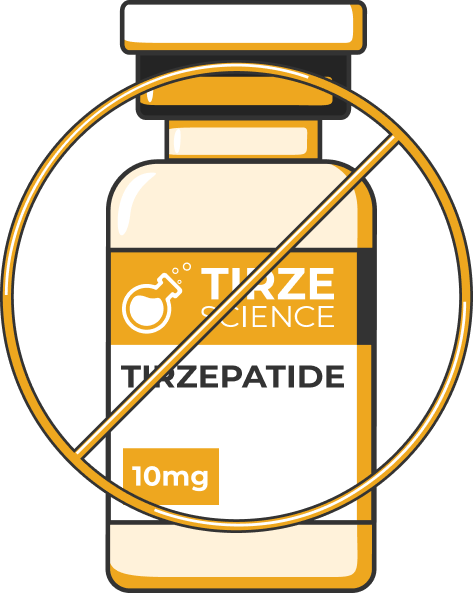- Home
Tirzepatide for Weight Loss in Non Diabetics – Overview
Tirzepatide, originally developed for diabetes management, has shown promising results in weight loss for non-diabetic individuals. This medication works by targeting hormones that control hunger and insulin levels, leading to a reduction in appetite and potential weight loss. Its effectiveness and safety for non-diabetics are currently under clinical investigation, offering new hope for those struggling with obesity without suffering from diabetes.

Tirzepatide for Weight Loss in Non Diabetics - Overview

Tirzepatide for Weight Loss in Non Diabetics - Overview
Tirzepatide has become a preferable option for weight loss among non-diabetic individuals. By influencing hormones responsible for hunger and insulin regulation, it offers a new approach to managing obesity without the need for diabetic treatment.
The drug targets GLP-1 (glucagon-like peptide-1) and GIP (glucose-dependent insulinotropic polypeptide), two hormones that regulate hunger, food intake, and insulin secretion. This dual mechanism not only curbs appetite but also enhances the body's ability to manage blood sugar levels effectively, which can be beneficial for weight management even in the absence of diabetes.
Clinical trials have shown encouraging results, with participants experiencing significant weight reduction compared to those on placebo treatments. These findings suggest that Tirzepatide could be a powerful tool in the fight against obesity, offering hope to millions who struggle with weight issues beyond diabetes.
How Effective is Tirzepatide for Weight Loss in Non Diabetics?
How Effective is Tirzepatide for Weight Loss in Non Diabetics?
For non-diabetics looking to shed pounds, Tirzepatide might seem appealing due to studies showing significant weight reduction in participants. These studies have included people with and without diabetes, highlighting its versatility as a weight management tool.
The way Tirzepatide works is quite interesting. It targets areas in your body that regulate appetite and food intake. Essentially, it can help you feel fuller for longer periods and reduce the amount of food you eat, contributing to weight loss.
However, it's crucial to approach this with caution. While the initial data looks promising, everyone's body reacts differently to medications. Plus, Tirzepatide is still under examination for use in weight management among non-diabetics, meaning it's vital to have thorough discussions with healthcare professionals before considering it as an option.
It's also important to note that medication should be in line with lifestyle changes, including healthy diet and exercise, for sustainable weight loss. Medications can provide a helpful boost, but the foundation of weight management lies in healthy habits.


- Gastrointestinal issues: Many people experience nausea, diarrhea, vomiting, constipation, and abdominal pain. These symptoms are relatively common when starting Tirzepatide and might decrease over time as your body adjusts to the medication.
- Appetite changes: Tirzepatide affects how your body regulates hunger, so you might notice changes in your appetite or eating patterns.
- Injection site reactions: Tirzepatide is an injectable medication, and it can cause reactions at the injection site, such as redness, itching, or swelling.
More severe side effects are less common but can include:
- Pancreatitis: A pancreas inflammation that can manifest as severe abdominal pain.
- Hypoglycemia: Although more typical in diabetics, low blood sugar can occasionally affect non-diabetics taking medications like Tirzepatide, especially if they are also taking other medications that can lower blood sugar.
- Kidney problems: There's a potential for kidney-related issues, which can be serious. Symptoms might include changes in urination, swelling in your feet or ankles, and fatigue.
- Gallbladder problems: This includes gallstones or inflammation of the gallbladder, which might lead to abdominal pain.
What Non Diabetics Should Not Use Tirzepatide?
What Non Diabetics Should Not Use Tirzepatide?
Certain groups of people should exercise caution or avoid using Tirzepatide unless advised otherwise by a healthcare professional.
- Pregnant or Breastfeeding Women: The effects on pregnancy and breastfeeding are unclear.
- Individuals with Past Pancreatitis: Increased risk of pancreatitis with Tirzepatide use.
- People with Severe Gastrointestinal Diseases: May experience worsened symptoms.
- Those with Kidney Issues: Tirzepatide could affect kidney function.
- Individuals Prone to Severe Hypoglycemia: Risk of low blood sugar.
- People with Gallbladder Disease: Possible gallbladder complications.
- Those with Multiple Endocrine Neoplasia syndrome type 2 (MEN 2) or with a History of Medullary Thyroid Carcinoma (MTC) or: Risk of thyroid C-cell tumors.
